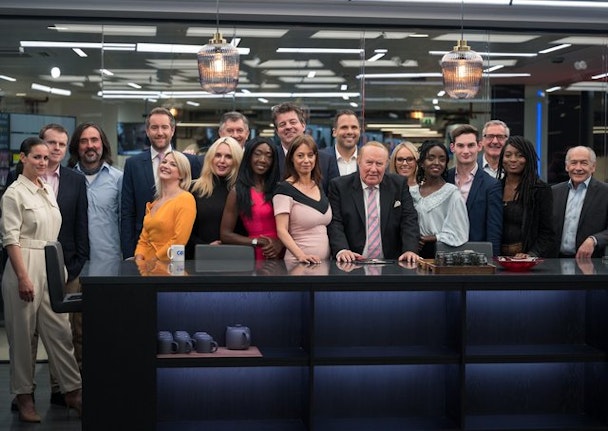How advertisers inadvertently bought TV ads on GB News - and what it says about media
When veteran broadcaster Andrew Neil’s GB News came to our screens loaded with scores of household name advertisers apparently undeterred by boycott pressure from social media activists, all looked rosy for the channel – until it emerged many of those brands had no idea they were advertising there. Media editor John McCarthy explains how that’s possible.

Some advertisers didn’t realize they had bought TV ads on GB News
In the hours after GB News’s hotly-debated launch on Sunday night, tens of major brands including Ikea, Grolsch and Kopparberg suddenly found their social media mentions lighting up with angry inquisitions about why they were advertising on the channel. Their response? We didn’t know we were.
Surely, you might ask, brands know which TV channels they are buying? Not quite. Given that GB News’s ad sales have been outsourced to Sky Media, one of the UK’s biggest ad sales houses, it is indeed plausible that some advertisers only realized they were advertising on the channel when they saw the pitchforks at their door. But how?
What happened?
A source familiar with Sky Media’s bartering process says that it is customary now for brands to buy audiences, not channels. And they are placed accordingly across the hundred-plus channels Sky carries during very select breaks.
They say: “It is very rare that a brand doesn’t want to appear on a channel, this is quite unprecedented. This hasn’t really happened before.”
And it’s true. It is difficult to conjure an example of a news organization being boycotted before launch and its media therefore subsequently being bought by accident.
Earlier this week, The Drum looked at which brands were apparently taking a stance by advertising on the channel. There were a huge number of household names you wouldn’t expect in a news environment. The problem was, many didn’t make a conscious decision to advertise on a channel which has found itself at the center of yet another culture war. The linear TV inventory was just added to the bidding pool at Sky Media, alongside 129 other channels.
Ian Daly, head of AV, Bountiful Cow, says this “issue is incredibly rare within the TV advertising landscape”.
“Content that is broadcast on TV is highly regulated to protect viewers and advertisers alike. However, the launch of GB News has been a wake-up call for the TV industry, with news headlines more akin to online media.”
He says there are still huge differences in the way we buy linear TV compared to digital buys. And the concern is that by buying linear TV programmatically, it will become increasingly difficult to maintain control on the environments that we are accessing.
“This is an issue that must be addressed by the broadcasters, especially if they plan to continue relationships with controversial media partners.”
A lot of partnerships are rigid and don’t allow for quick changes, he says. “Rigid agency group trading agreements that focus too much on delivering low-cost airtime have resulted in some agencies and clients relinquishing control over the environments that they are accessing.”
He calls for more transparency around new channel launches. GB News should not have sat undistinguished in the same inventory as, say, Sky One or Channel 5. The source says many brands were automatically delivered to their preferred audience on GB News and that many subsequently learned they were placed there, and made the decision to give it a wide berth after the fact.
So who did that?
Octopus Energy founder Greg Jackson was the first to tweet about appearing next to the media. He said the spots were not planned.
In the programmatic advertising world, such concessions are common. The scale of the buys can sometimes afford undesirable placements. In TV, there’s a much smaller pool to buy. It’s harder to miss the mark.
And yet more brands joined the chorus.
Cider brand Kopparberg tweeted: “We want to make it clear to everyone that our ad ran on this channel without our knowledge or consent. Kopparberg is a drink for everyone and we have immediately suspended our ads from this channel pending further review of its content.”
A drink for everyone – just not GB News viewers it appears. Grolsch followed the next day saying the media was bought “without our knowledge or consent”.
Then the Open University also announced: “We’ve not planned or purchased advertising with GB News and are investigating why this has happened.”
Vodafone also denied knowledge of its ads appearing on the channel. Its policy to give new titles a few months to bed in and set the agenda before buying ads seems a shrewd one, and one that failed in this instance.
Sky Media’s mistake, to bundle provocative media with its usual batches, has incensed numerous clients and dragged them into a debate they’d much rather miss out on. But one media buyer tells The Drum many colleagues had bought GB News.
So the question is, how many of GB News’s advertisers actively sought out that inventory and are keen to continue supporting it?
Andrew Neil, who’s had scrapes with Spectator advertisers like Co-op before, tweeted and retweeted condemnations of those ditching the channel under social media pressure. He included a dig at Ikea’s chief exec following its departure from the channel, when the company declared: “Ikea has not knowingly advertised on GB News.”
The coming weeks will show how many advertisers stick by the broadcaster – knowingly.

